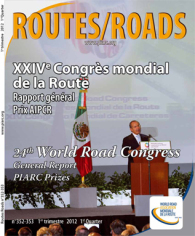Features
Life cycle assessment throught a comprenhensive sustainability framework: a case study of urban transportation vehicles- Sustainable Development Prize
Road transportation contributes in the consumption of significant quantities of energy and materials and in the deterioration of air quality. Two promising factors that have the potential to alter the increasing trend of energy consumption and emissions are the fuel economy and the transformation of propulsion used in road transportation. The large impacts of the transportation sector on the environment and economy, and the social effects of transportation on communities necessitate the incorporation of sustainability into the transportation planning process. In this way, more comprehensive outcomes and predictions become available to decision makers.
The development and introduction of vehicles with alternative propulsion require a detailed breakdown of vehicle components for the proper understanding of their performance and of their impacts over their entire life cycle. Disaggregation per vehicle type in a transportation network and life cycle sustainability assessment may lead to more accurate planning and policy making. Vehicle types and propulsion options examined herein include internal combustion engine vehicle, hybrid electric vehicle, fuel cell vehicle, electric vehicle, plug-in hybrid vehicle, gasoline pickup truck, diesel bus and bus rapid transit.
This paper proposes a sustainability framework, with seven dimensions, that acts as a filter, which decomposes the elements of a transportation mode to reveal its sustainability categories. The proposed framework for urban transportation modes is implemented in an in-depth life cycle sustainability assessment of eight different vehicle types. A complete methodology for developing the sustainability categories and quantifying the life cycle sustainability indicators which are required to assess any urban transportation vehicle follows.



